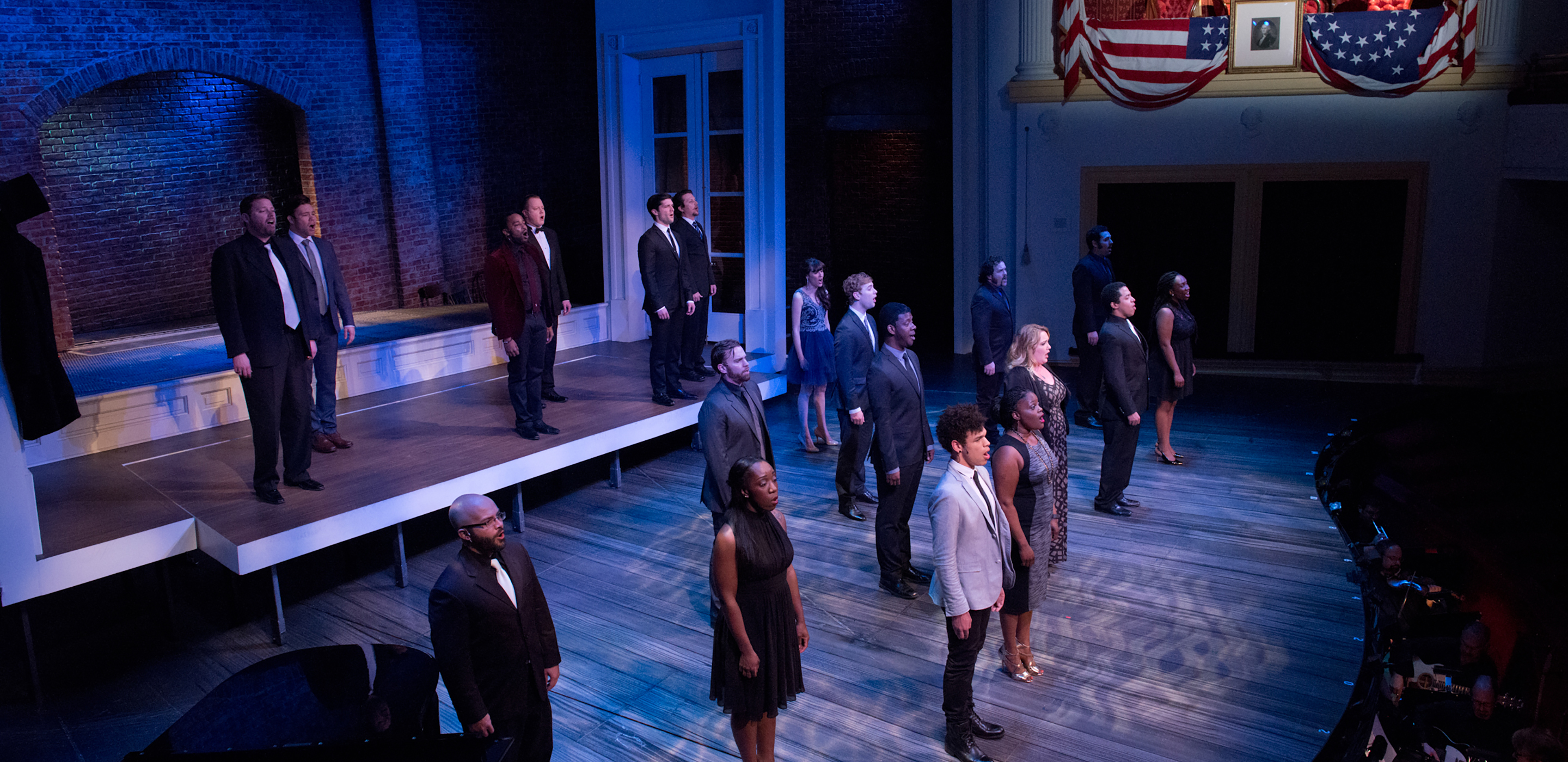
Who We Are
One of the most visited sites in the nation’s capital, Ford’s Theatre reopened its doors in 1968, more than a hundred years after the assassination of President Abraham Lincoln. Operated through a partnership between Ford’s Theatre Society and the National Park Service, Ford’s Theatre is the premier destination in the nation’s capital to explore and celebrate Abraham Lincoln’s life and legacy.
Ford’s Theatre Society was founded under the guidance of executive producer Frankie Hewitt, who, during her 35-year tenure, established Ford’s as a living, working theatre producing performances that highlighted the diversity of the American experience. Since the arrival of Paul R. Tetreault as Director, critics and the theatregoing public have recognized Ford’s for the superior quality of its artistic programming. With works from the Tony-nominated Come From Away and the nationally acclaimed Big River, to the world premieres of Meet John Doe, The Heavens Are Hung In Black, Liberty Smith, Necessary Sacrifices, The Widow Lincoln and The Guard, Ford’s Theatre is making its mark on the
American theatre landscape.
In the past decade, the mission of Ford’s Theatre Society expanded to include education as a central pillar. This expansion led to the creation and construction of the Center for Education and Leadership, which opened in February 2012. Under the current leadership of Board of Trustees Chairman Phebe N. Novakovic and through the lens of Lincoln’s leadership and legacy, Ford’s today endeavors to advance Lincoln’s “unfinished work” with programs and performances that cultivate empathy, encourage dialogue and bridge divides in our American life.
For more information on Ford’s Theatre and the Ford’s Theatre Society, please visit Ford’s Theatre.
Our Values
Courage: We engage deeply with complex truths, explore new ideas and commit to evolving as an organization
Empathy: We cultivate the ability to see our shared humanity and act with compassion
Accessibility: We create an environment that provides experiences and opportunities for all
Collective Engagement: We are a community that celebrates commonalities and embraces differences
Inspired Creativity: We seek to inspire imagination and creative thinking as we collaborate with each other and our community
“We can succeed only by concert. It is not ‘can any of us imagine better?’ but, ‘can we all do better?’” — Abraham Lincoln, 1862
Vision
With Lincoln’s leadership as our inspiration, Ford’s Theatre serves as a beacon of hope, endeavoring to advance his unfinished work. We bring together citizens and people from across the globe, from different backgrounds and varying viewpoints. Through our work, we bridge divides, cultivate empathy, encourage dialogue and embrace shared ideals.
With malice toward none; with charity for all; with firmness in the right, as God gives us to see the right, let us strive on to finish the work we are in … to do all which may achieve and cherish a just, and a lasting peace, among ourselves, and with all nations
–Abraham Lincoln, Second Inaugural Address
